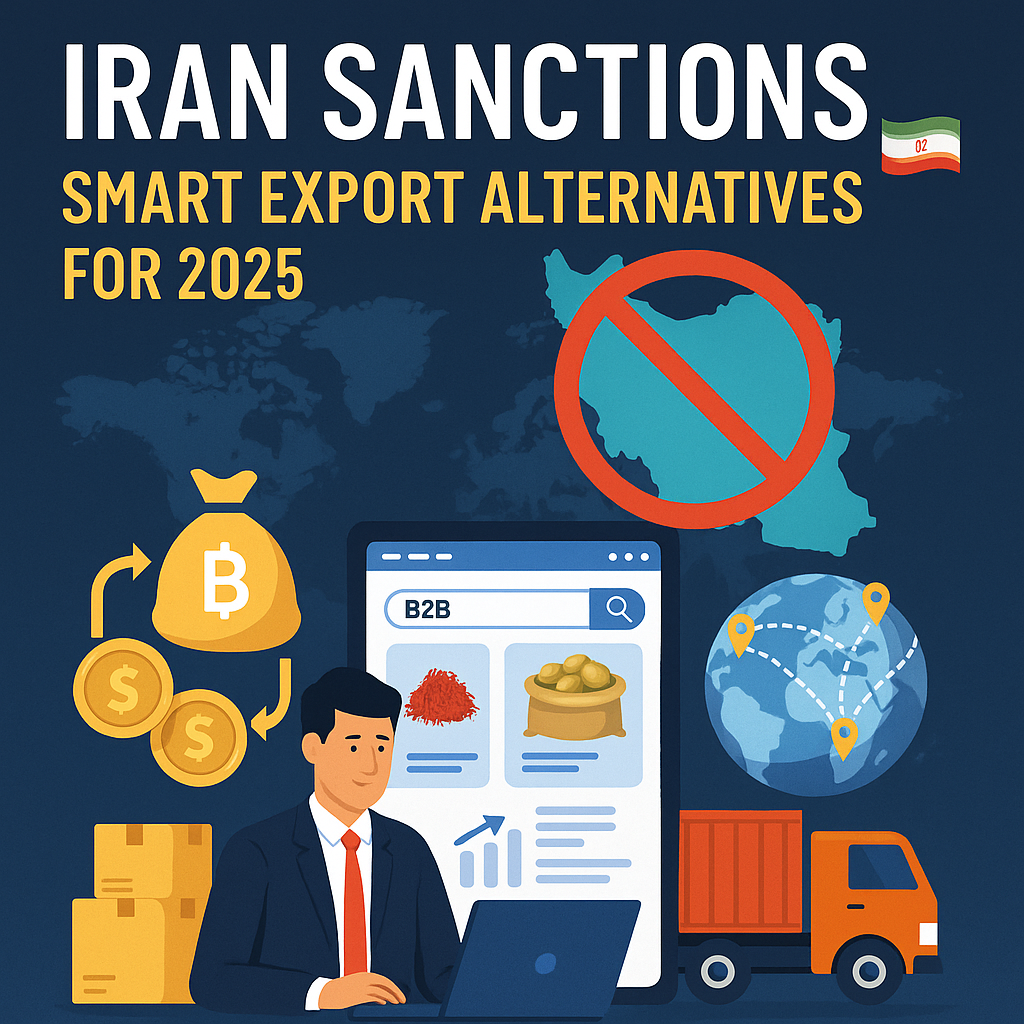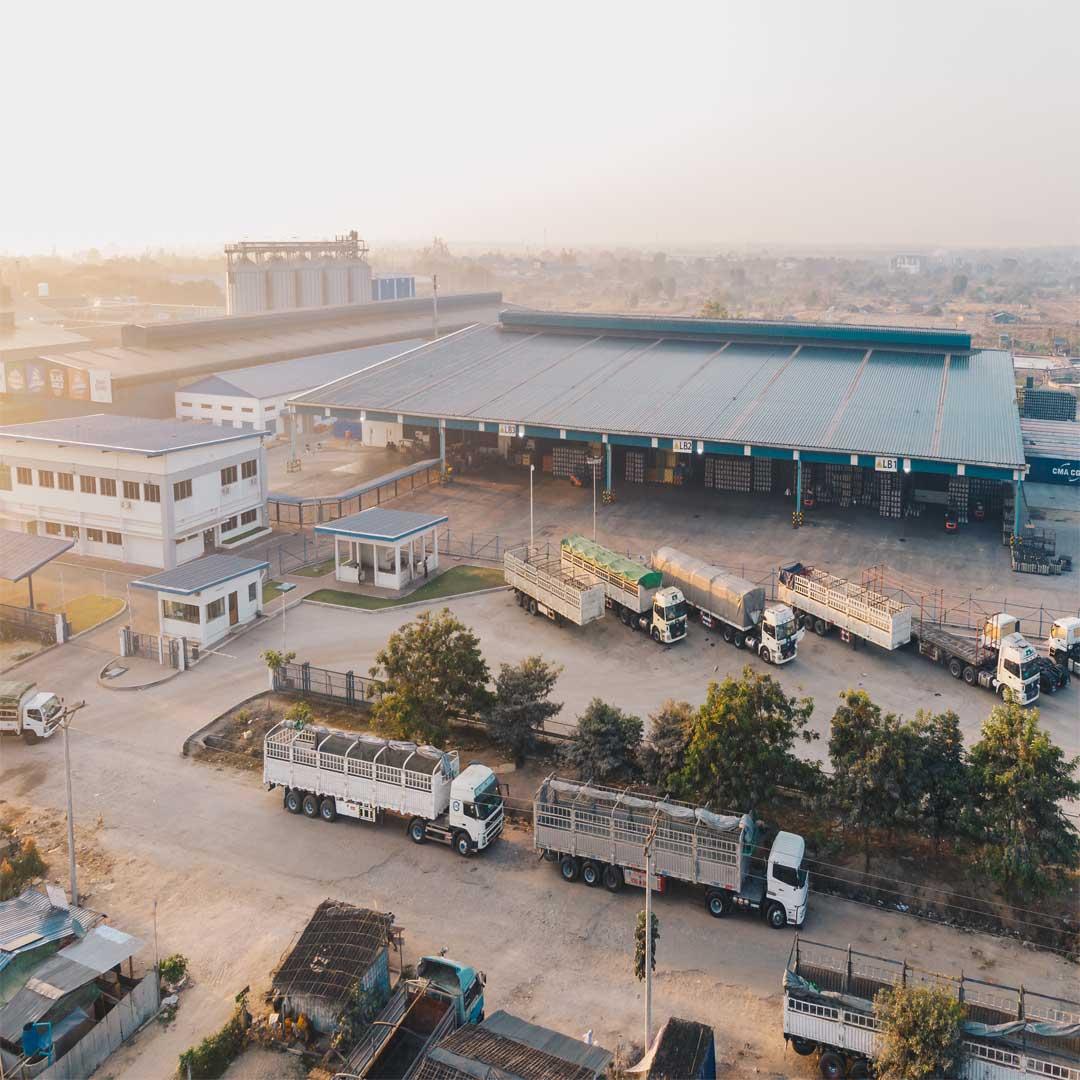Despite sanctions, Iranian exporters continue to trade smarter in 2025, exploring new export alternatives, regional rout...
Iran’s Exports to Turkey: Key Trade Opportunities & Market Trends
Iran’s Exports to Turkey
Turkey is one of Iran’s northwestern neighbors and has experienced significant economic growth in recent years. The tourism industry in Turkey is highly developed, attracting a large number of visitors annually. This has increased Turkey’s demand for high-quality food products, making the export market for various food items to Turkey very active. Turkey is one of Iran’s key export destinations, with significant amounts of agricultural and food products being exported annually. Additionally, Turkey has excelled in exporting products such as raisins, pistachios, and more to other countries. Iran and Turkey maintain strong political relations, making Turkey one of Iran’s important trade partners. The two countries have extensive exchanges in the energy and food sectors. Historically, Iran and Turkey have engaged in economic relations, with Iran exporting a variety of goods to Turkey. Trade between these two countries continues to grow each year. The list of Iran’s export goods to Turkey demonstrates that Turkey’s economy is at a high level and has the potential for further growth. According to statistics, most of Iran’s exports to Turkey are in the agricultural sector, while imports mainly consist of gas and petrochemical products.
Available data shows fluctuations in Iran’s exports to Turkey in recent years. In September 2024, Iran’s exports to Turkey increased by 35% compared to the previous year, reaching $189 million. In the first six months of 2024, the volume of Iran’s exports to Turkey amounted to $2.393 billion, accounting for 9.29% of Iran’s total exports, making Turkey the fourth-largest export destination for Iran. One of the key export products from Iran to Turkey is dates. In 2020, Iran exported more than $28 million worth of dates to Turkey. Turkey aims to increase its total exports to $280 billion by 2025. As a result, Turkey remains one of Iran’s major export markets, offering significant opportunities for Iranian traders.
Iran’s Export Capacities to Turkey
Iran has the capacity to export goods to Turkey across ten different categories, including a wide range of products:
- Oil and Petroleum Products: One of Iran’s primary exports to Turkey includes crude oil, natural gas, bitumen, industrial oils, and other petroleum derivatives. Due to Turkey’s high demand for these products, they form a crucial part of bilateral trade.
- Building Stones and Minerals: Turkey is a major destination for Iranian construction stones such as marble, travertine, granite, and limestone, which are widely used in its construction industry.
- Dried Fruits and Agricultural Products: Iran holds a strong position in exporting dried fruits to Turkey. High-demand products include pistachios, saffron, dates, raisins, almonds, and walnuts. Additionally, fresh fruits and vegetables such as apples, oranges, watermelon, cucumbers, and tomatoes are also exported.
- Petrochemical and Chemical Products: Turkey is a significant consumer of Iranian petrochemical products, including polyethylene, polypropylene, urea, methanol, resins, and other industrial chemicals.
- Minerals and Metals: Turkey is a key market for Iran’s iron ore, copper, zinc, aluminum, and chromite, which are essential for Turkey’s steel and industrial sectors.
- Carpets and Handicrafts: Iranian handwoven carpets are considered luxurious and highly valued in Turkey. Additionally, Iranian handicrafts such as copperware, pottery, enamelwork, and marquetry have strong demand.
- Plastic and Polymer Products: Iran is a major exporter of plastic and polymer products to Turkey, including polyethylene pipes, nylon, plastic bags, and packaging materials.
- Pharmaceuticals and Medical Equipment: With the growth of Iran’s pharmaceutical industry, Iranian medicines and medical equipment, including herbal medicines, dietary supplements, injectable serums, and laboratory equipment, are exported to Turkey.
- Food Industry: Turkey is a major market for Iranian food exports, including tomato paste, canned foods, honey, dairy products, spices, pasta, sugar, fruit juices, and non-alcoholic beverages.
- Textiles and Apparel: Iran also exports textiles and clothing to Turkey, including fabrics, yarn, traditional garments, socks, and some leather products, with potential for further growth in this sector.
Saffron Suitcase Trade to Turkey
As mentioned earlier, Turkey has a strong market for saffron, providing lucrative income opportunities. Some individuals engage in suitcase trade, carrying saffron as travelers. However, there are customs regulations in Iran restricting saffron exports, with a personal limit of 100 grams. Exceeding this limit results in confiscation at customs.
Pistachio Exports to Turkey
Pistachios are one of the world’s most popular dried fruits, with Iran being a leading producer. Pistachio exports generate significant foreign exchange income for Iran. Turkey, due to its proximity, accessibility, and growing tourism-driven economy, presents a strong market for Iranian pistachios. Despite Turkey’s investments in domestic pistachio cultivation, its production does not meet domestic demand, necessitating imports.
However, countries like the U.S. and Morocco compete with Iranian pistachios in the Turkish market. The U.S. has improved its pistachio yield and surpassed Iran as the world’s largest producer. Due to economic collaborations between Turkey and the U.S., American pistachio exports to Turkey have increased. Nevertheless, Iranian pistachios remain highly sought after due to their superior taste and quality.
Dried Fruit Exports to Turkey
Dried fruits are among the most popular food products worldwide, and Iran is a major producer of pistachios, dried figs, dates, and almonds. Dried fruit exports generate significant foreign exchange revenue for Iran. Turkey, with its large population, serves as a key market for Iranian dried fruits, offering excellent business opportunities for Iranian exporters.
Given their long shelf life and high nutritional value, dried fruits enjoy strong demand. Exporting dried fruits to Turkey is highly profitable for Iranian traders. However, attractive and standard packaging is crucial for success in this competitive market.
List of Iran’s Agricultural Exports to Turkey
Iran’s exports to Turkey are primarily agricultural, including dried fruits, dates, and dried fruits such as watermelon. In recent years, these exports have diversified. For instance, in early 2018, Iran exported approximately $58 million worth of agricultural products to Turkey, while imports from Turkey totaled $112 million. In 2017, Iran exported $217 million worth of agricultural products to Turkey and imported $503 million worth from Turkey.
Trade relations between Iran and Turkey in the agricultural sector have grown significantly, with international agreements on agricultural development, beekeeping, fisheries, livestock, and other agricultural technologies.
- Onion Exports to Turkey
Iran, with its favorable geography and extensive farmlands, exports surplus onions to various countries throughout the year. Many countries prefer Iranian onions due to their high quality and competitive pricing. Among agricultural exports to Turkey, onions (yellow, organic, red, golden, and white varieties) are currently in high demand.
- Fresh Fruit Exports to Turkey
Fresh fruit exports to Turkey are highly profitable. Since some fruits have a short shelf life, exporting them to distant countries is challenging. Turkey, due to its proximity, is an ideal market for Iranian fresh fruits, including dates, grapes, and kiwis.
- Dried Fruit Exports to Turkey
Dried fruits have become an excellent export option, generating revenue and reducing agricultural waste. Iranian dried fruits are of superior quality and more affordable than those from some competing countries, making them attractive to traders. Although Turkey produces dried fruits, Iranian products continue to gain traction due to their quality. Improved packaging can further boost this market.
- Raisin Exports to Turkey
Raisin exports to Turkey require compliance with strict quality standards. Turkish buyers thoroughly inspect products before purchasing. Turkish traders usually review the product firsthand, finalize contracts, and receive shipments at the border.
Iran’s Non-Agricultural Exports to Turkey
Oil and gas are among Iran’s top exports to Turkey. Petrochemical products, including refined petroleum and natural gas, play a significant role. Additionally, metal exports such as zinc and copper are among the top non-agricultural exports to Turkey.
- Copper Exports to Turkey
Copper is a vital mineral used in transportation, alloys, machinery, and electrical industries. Many countries lack sufficient copper resources and must import it. Turkey relies on imports of raw materials like zinc and copper, making them major exports from Iran.
Marketing and Exporting Iranian Products to Turkey via the Abrisham Road International Platform
The Abrisham Road International Platform facilitates Iranian product exports to Turkey using modern digital marketing, advertising, business networking, and export services, providing Iranian businesses with access to the Turkish market.
How to Increase Website Traffic on Google for Export Businesses
In today’s competitive digital landscape, having a strong online presence is crucial for any export business. If you are running a B2B export website and looking for ways to increase your visibility on Google, here are some key strategies that can help drive more traffic to your website:
- Optimize Your Website for SEO
Search Engine Optimization (SEO) is the foundation of increasing your website’s visibility.
- Create High-Quality Content
Content marketing is a powerful way to attract organic traffic.
- Leverage social media & Online Platforms
Promoting your website on social media can help drive traffic and generate leads.
- Build High-Quality Backlinks
Backlinks from authoritative sites improve your domain authority and search ranking.
- Use Google Ads & Retargeting
Paid advertising can give an instant boost to your website traffic.
- Optimize for Local & International SEO
If your export business serves different markets, optimizing for international SEO is essential.
- Monitor & Analyze Performance
Tracking your website’s performance helps refine your strategy.
Conclusion
Growing traffic to your export business website requires a mix of SEO, content marketing, social media engagement, and paid advertising. By implementing these strategies, you can increase your Google visibility, attract more potential clients, and boost your sales. Start optimizing today and watch your export business thrive!




